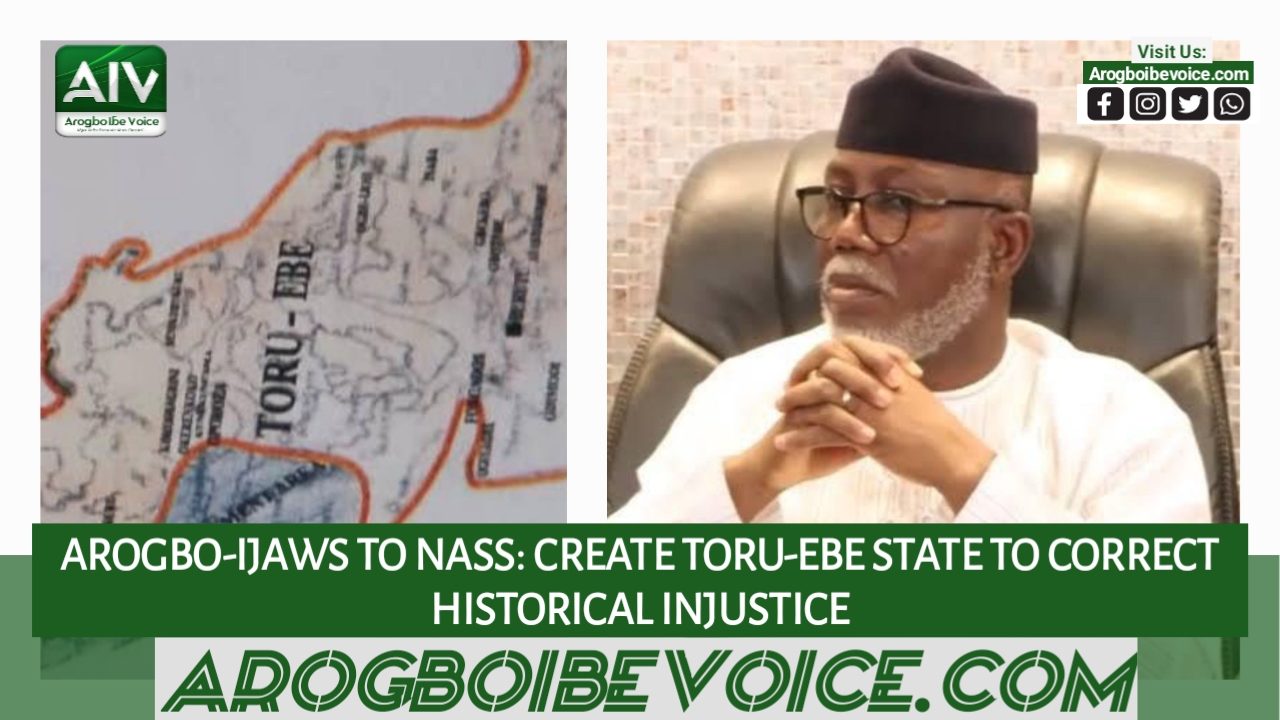Arogbo-Ijaws to NASS: Create Toru-Ebe State to Correct Historical Injustice
The Arogbo-Ijaw people of Ondo State have once again pressed for the creation of Toru-Ebe State, citing decades of ethnic fragmentation, political exclusion, and systemic neglect across Nigeria’s federal structure.
Their renewed call came during a public hearing of the House of Representatives Committee on the Review of the 1999 Constitution held in Akure on Friday, where a delegation from the Arogbo-Ijaw community presented a strongly worded memorandum.
Speaking on behalf of the delegation, Chief Francis Williams, a respected community leader, said the Ijaw ethnic nationality—spread across Delta, Edo, and Ondo States—has long been marginalised due to decisions made during colonial rule and afterward, which split the Ijaw population into minority fragments in multiple states.
“Our demand is anchored on fairness, justice, and equity. The Ijaw people are the fourth-largest ethnic nationality in Nigeria, yet we have been politically orphaned by the structure of the Nigerian state,” Chief Williams stated.
He noted that colonial and post-independence boundary adjustments divided the Ijaw people between the Eastern and Western regions, leaving them permanently as minorities with little say in state affairs.
The proposed Toru-Ebe State, according to the delegation, would serve as a unifying homeland for Ijaws in the western Niger Delta and offer long-overdue political representation, development, and cultural preservation.
“We are an indigenous people with an unbroken ancestral presence in the Niger Delta for over 8,000 years. Yet today, we are without a state we can call our own. That is a deep injustice,” Williams said.
The Arogbo-Ijaw leaders cited past efforts dating as far back as the Patani Conference in 1991 and the Kaiama Declaration in 1993, both of which underscored the need for homogenous Ijaw states. Despite repeated appeals, they say, the federal structure has remained indifferent.
Referencing international instruments, including the United Nations Declaration on the Rights of Indigenous Peoplesand the African Charter on Human and Peoples’ Rights, Williams argued that the Ijaw people are constitutionally and morally entitled to self-governance.
“We invoke these global declarations, to which Nigeria is a signatory. The Ijaw people are entitled to manage their lands, culture, resources, and political future without systemic exclusion,” he said.
He further referenced statements made by national icons like Chief Rotimi Williams, who once warned against dividing ethnic groups into political minorities, and Dr. Nnamdi Azikiwe, who championed cohesive state formations to enable self-determination.
“It is immoral to split one ethnic group into two,” Williams echoed.
Although the creation of Bayelsa State in 1996 marked a significant milestone for Ijaws in the eastern Delta, the delegation argued that Ijaws in Ondo and Edo remain politically stranded and developmentally neglected.
The Arogbo-Ijaw people concluded their submission with a passionate appeal to the National Assembly to correct the longstanding injustice.
“As the constitutional review continues, we call on the Nigerian legislature to act with courage and historical responsibility. Our heroes of the past stood for unity, fairness, and indigenous autonomy. We ask the same today. We rest our case and pray for justice,” Chief Williams said.
The demand for Toru-Ebe State is expected to generate further national discourse as conversations around restructuring and true federalism intensify ahead of the next constitutional amendment.

